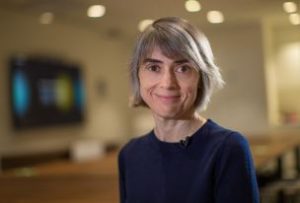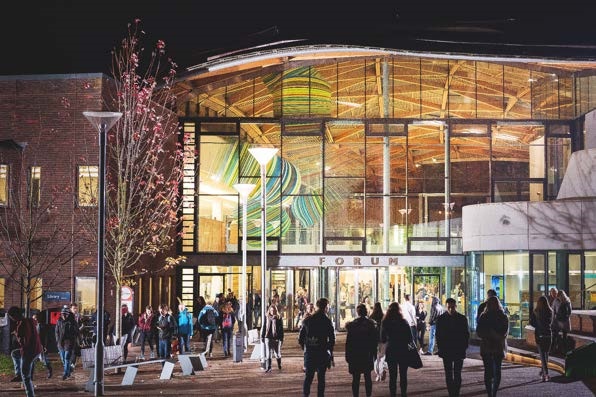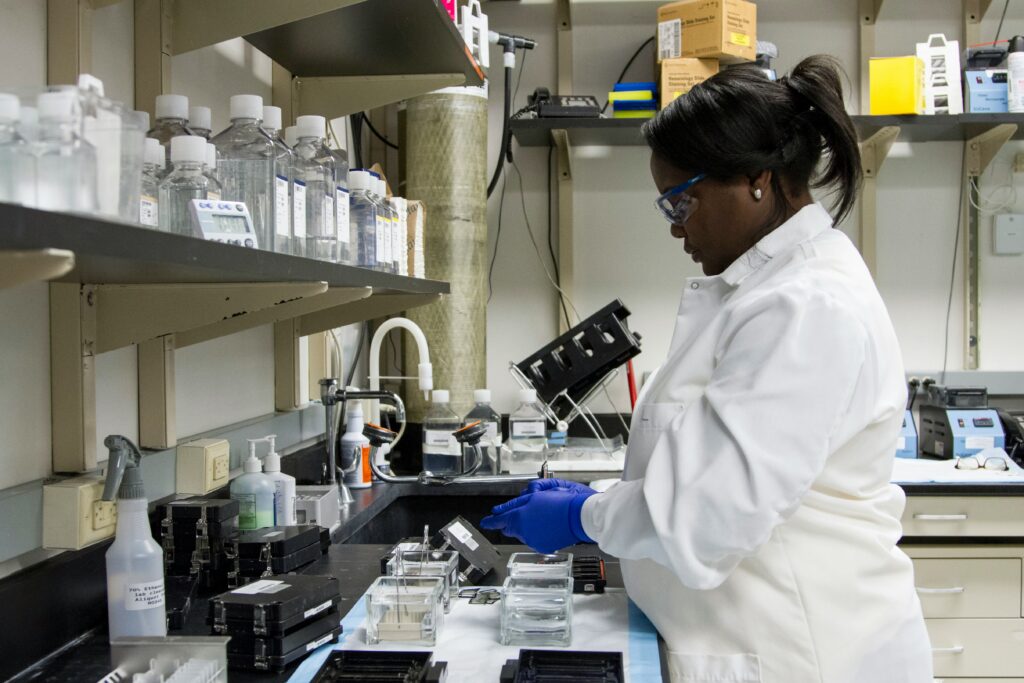- English
- DEUTSCH
- SPANISH
- FRENCH





The rate of discovery and technological advance is astonishing, with unprecedented opportunities to create value for society and the economy. The science fiction of just a few decades ago, from video calls to bionic limbs, is now part of everyday life. This is a new industrial revolution, driven by the pace of technological change.
At the same time, there are major challenges as we tackle the unintended consequences of the first industrial revolution, from the environmental impacts of fossil fuels to the health impacts of sugar, together with the many impacts of the COVID-19 pandemic, and the geopolitical instabilities we see across the world. These are complex and demanding challenges, but the new industrial revolution presents major opportunities to address them and to enrich and improve lives in the UK and around the world.


The UK government is clear about the central importance of R&D in the decade of renewal the UK needs, protecting investment in R&D with a record £20.4bn budget for 2024-25, and embedding it across its 5 missions. UKRI has a unique and critical role to play in this new landscape. Our reach across sectors and across disciplines is central to delivering on the government’s plan for change. Our 2022-2027 strategy will put the UK at the forefront of solutions to national and global challenges, from climate change and healthy ageing to national security.
Each of our seven research councils, Research England and Innovate UK play a critical role in our strategy development and delivery. Led by their Executive Chair they are supported by an advisory Council of experts within their respective fields, who help to shape the councils’ Strategic Delivery Plans and their ongoing implementation, which set out the combined and collective actions we will take to deliver our strategy.
We are now seeking to appoint Council Members to five of UKRI’s Councils as well as to Research England and Innovate UK. We are seeking candidates from a variety of backgrounds, including commerce and innovation, civil society, academia and government. We place equality, diversity and inclusion at the heart of UKRI’s vision, and know that it is only when we support and foster the widest possible range of talent that we are nurturing the best possible research and innovation, harnessed in the service of society.
Working together, we have the opportunity to harness the extraordinary potential of research and innovation to fuel the UK’s prosperity, improving lives and livelihoods. As the landscape for research and innovation continues to evolve and strengthen, UKRI is here to shape and support it – transforming tomorrow together. Once again thank you for your interest in contributing to this endeavour.
Yours,
_________
UK Research and Innovation is seeking to appoint Council Members across five councils as well as Research England and Innovate UK.
UKRI’s councils’ Councils are a core part of its advisory structures. The depth and breadth of expertise represented on the Councils provides a wealth of advice and challenge for council Executive Chairs to support the health of disciplines and sectors across the UK’s research and innovation landscape. Beyond that, working across UKRI, Council members advise on cross-cutting activities, ensuring the benefits of a fully joined up system are realised, and that interdisciplinary research and innovation thrive.
The Council members will between them have a broad range of expertise and experience in research and innovation across higher education, industry, commerce, policy and/or civil society and the relevant user communities for each Council, reflecting different characteristics and professional backgrounds.
You will also be asked to complete a Diversity Monitoring Form as part of your application.
Goran is a Partner & Sector Lead, Health & Life Sciences.
His experience includes working on senior level strategic appointments for a range of higher education institutions, research institutes and centres, research-led organisations, public-private partnerships and biotech companies, and on global professorial and chair level appointments across various disciplines.
Goran holds an MSc in Molecular Biology from University of Zagreb and a PhD in Molecular and Cell Biology from University of Geneva.
Prior to joining Perrett Laver, Goran was a Postdoctoral Researcher at Faculty of Medicine, Imperial College London.
Jack is Partner & Sector Lead, AI, Data & Technology.
His experience of senior level executive search includes multiple Chair and Professorial appointments globally across all academic disciplines, as well as leadership appointments in higher education and industry research and development.
Jack is expert in the use of metrics and analytics for the identification and assessment of world leading academics.
Jack holds a BSc in Physiology from the University of Liverpool, an MSc from the University of Leeds in Ion Channels in Disease and a PhD from Kings College London in Cell Signalling. His research focused on the role of ion channels in hormone release.
Alex is a Consultant at Perrett Laver.
His experience of senior level executive search includes Chair and Professorial appointments for global Higher Education institutions and research leadership appointments in research and innovation focused organisations.
Alex holds a BA and MA in History, and a PhD in Medieval History from the University of Manchester. His research focused on analysis and translation of Old French chronicles and Norman law codes.
Prior to joining Perrett Laver he also taught at the University of Manchester and Swansea University.
Her experience in senior level executive search includes Board, Chief Executive and Senior Academic and Administrative appointments globally in higher education.
Fiona has spent the majority of her career in executive search, working with a variety of organisations in both the public and private sectors. For the last decade, she has focused on Higher Education, helping to establish the Practice for Heidrick and Struggles and more recently working at Odgers Berndtson. She holds a Joint BA (Hons) in History & American Studies from Keele University.